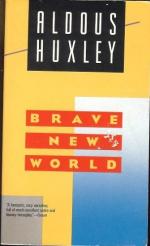|
This section contains 624 words (approx. 3 pages at 300 words per page) |

|
Brave New World and Blade Runner: A Comparison
Summary: Compares and contrasts Aldous Huxley's novel, Brave New World and Ridley Scott's film, Blade Runner Director's Cut. share many ideas about humanity's relationship with the natural world, and are closely connected by the values they convey. Describes how both works raise questions concerning the value of life, both human and replicant. Also examines how in each text, natural processes and human emotions have been impacted on by technology.
Aldous Huxley's Brave New World and Ridley Scott's Blade Runner Director's Cut share many ideas about humanity's relationship with the natural world, and are closely connected by the values they convey. Both texts raise questions concerning the value of life, both human and replicant. In each text, natural processes and human emotions have been impacted on by technology. Both texts are highly relevant for contemporary responders because they question the implications of technological advancement.
Natural processes and human behaviour have been altered in both texts. Brave New World depicts a dystopic society where babies are decanted instead of born and humanity is controlled for the sake of social stability. The cloning and reproductive technologies used in Brave New World make the natural process of pregnancy obsolete. Conditioning is used to limit individuality and autonomy and to suppress natural emotions in order to maintain stability. The society is divided...
|
This section contains 624 words (approx. 3 pages at 300 words per page) |

|


